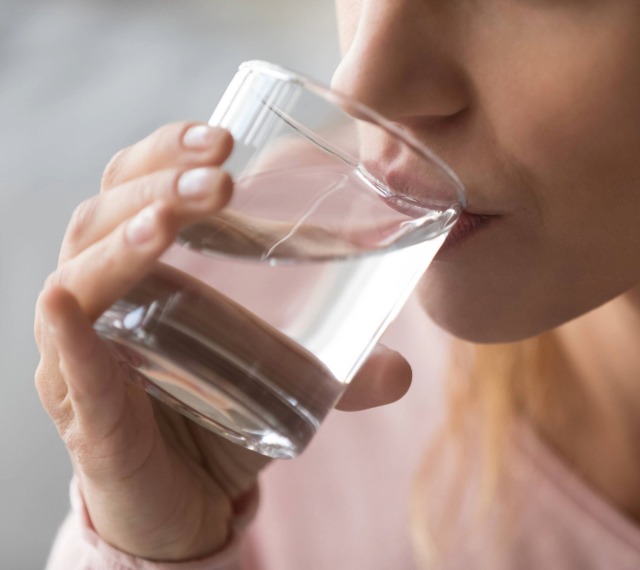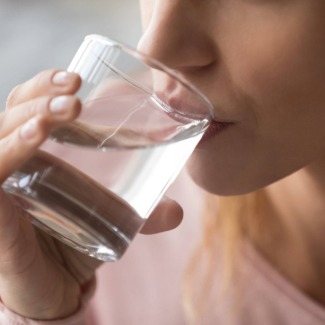Our bodies need water to function and stay healthy. That’s why it’s important to stay hydrated and drink high-quality water. Read on to learn more about the impact water can have on your everyday well-being.
Water plays a vital role
Water makes up around 60% of the human body and 85% of the brain. It plays a key role in many vital functions, such as transporting nutrients, regulating body temperature, flushing out toxins, and lubricating joints.
In addition to supporting these functions, drinking water promotes waste excretion, helps stabilize or reduce weight, improves the look of skin, and enhances muscle performance by reducing the risk of cramps.
Thirst and dehydration
Throughout the day, we naturally lose water as we sweat, breathe, and excrete bodily waste. Heat, physical activity, and diuretic drinks such as coffee and alcohol make us lose more water.
Even mild dehydration can cause fatigue, headaches, trouble focusing, and impaired physical and cognitive performance. Over time, chronic dehydration can lead to health issues, including kidney stones, frequent urinary tract infections, and digestive problems.
How can you tell if you’re drinking enough water?
A dry mouth, dark urine, headaches, and decreased energy are all signs that you need to hydrate. Don’t wait until you’re thirsty, because thirst is a warning sign that dehydration has already set in. Some people even have a faulty thirst mechanism, which prevents them from feeling thirsty even when they’re dehydrated.
The World Health Organization (WHO) recommends a total daily water intake of 3.7 litres for men and 2.7 litres for women, including water contained in food. A balanced diet provides around 1.5–2 litres of water through food, leaving a daily drinking requirement of 1.5–2 litres.
Hydration and exercise
Exercise causes the body to lose water and electrolytes—the minerals that keep our muscles, heart, and nervous system working properly. So it’s important to stay hydrated before, during, and after exercise to avoid cramps, shortness of breath, and muscle fatigue. You may also want to consider consuming more electrolytes, especially for long or intense workouts.
What kind of water should you drink?
Filtered water is the best option. Although tap water is safe to drink in many areas, it can contain traces of pesticides, nitrates, heavy metals (such as lead), and drug and hormone residues. Prolonged exposure to these substances can affect your health, especially your endocrine system.
Plastic bottles also pose a risk because they can contain microplastics that accumulate in the body, promoting inflammation and disrupting the gut microbiota.
Filtered water stored in a reusable glass or stainless-steel bottle is a healthier, greener solution. It can be hard to remember to drink water, so keep a bottle on hand to remind you to stay hydrated.
Thank you to Jean-Yves Dionne, a scientific consultant for natural health products, for his help with this article.
This article provides general information only and is not intended to replace the advice or care of a healthcare professional.

